Conscious Humanity, No. 96
Not everything will be okay but some things will, how to belong, the rise of the matriarchy, why gardening makes us happy, ethical chocolate, and more...
Welcome to this edition of Conscious Humanity — it’s so good to see you here!
Below are seven things that have made my life better in the last two weeks. They’re formatted so you can scan through and skip over things that aren’t interesting to you, and dive deeper into those that are.
I hope at least one thing brightens your day, prompts an ‘aha’ moment, or inspires you to take action on something close to your heart.
Firstly, it’s been lovely to hear about some glimmers of hope around the world this week. Senator Cory Booker spoke for 25 hours in the U.S. Senate in protest against Trump’s actions. Booker said,
“Moments like this require us to be more creative or more imaginative, or just more persistent and dogged and determined.”
And in another case of challenging the dominant narrative, or culture, 500 million Chinese people are rethinking their spending habits and priorities, pushing back against the 996 model (working from 9am to 9pm, 6 days a week) to embrace slower, simpler living: “Tang ping” has been trending for a few years now and is described as a spiritual movement that involves “not overworking, being content with more attainable achievements and allowing time to unwind.”
I think these glimmers of hope are powerful in a world that is seemingly going mad!
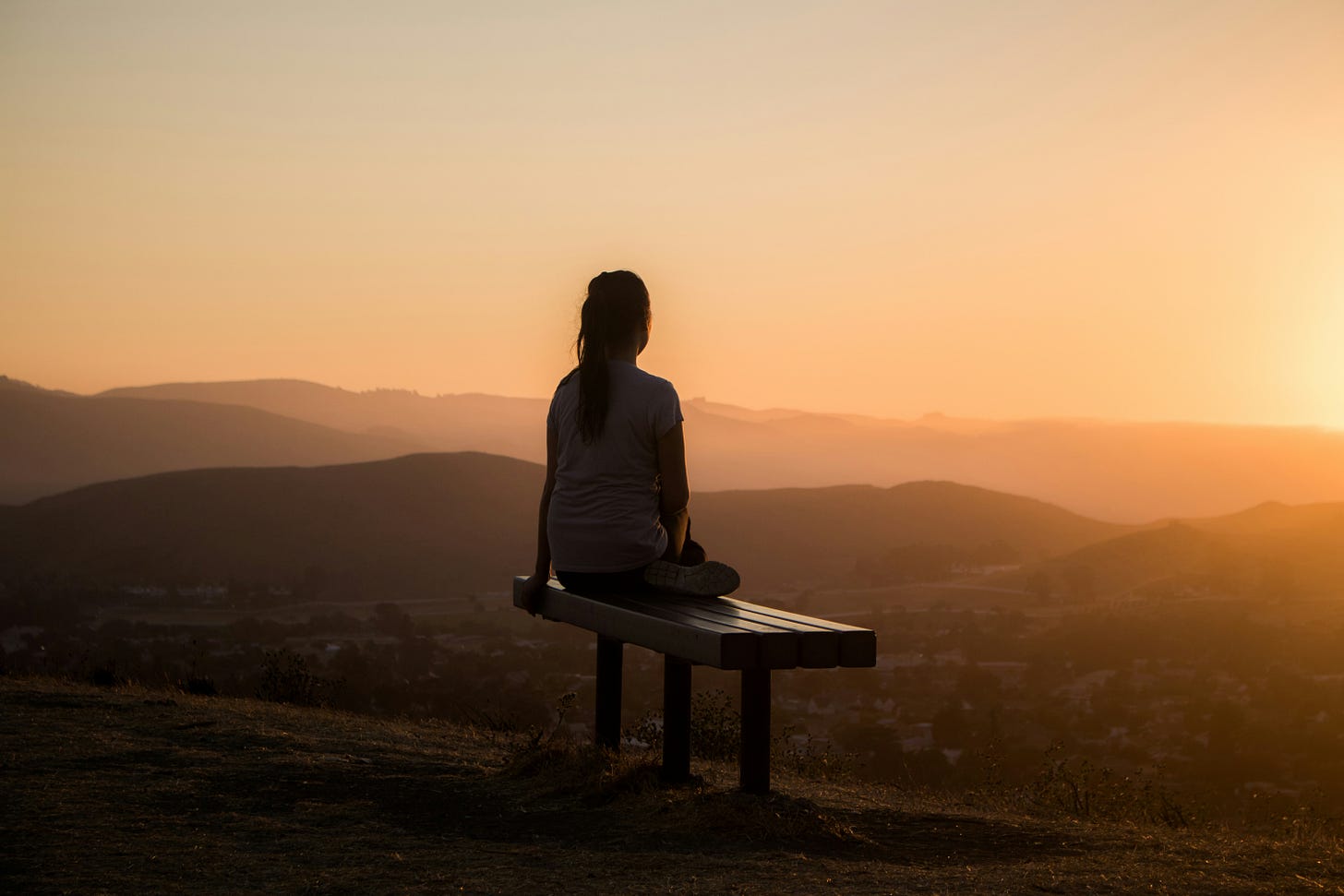
Not everything will be okay, but some things will.
I found a lovely quote shared by artist, Maira Kalman at the end of her 2012 presentation about Art and the Power of Not Knowing via Austin Kleon’s newsletter. I love hearing about creative processes, and Maira had some lovely take-aways but it was this final quote that resonated most:
“Not everything will be okay, but some things will.”
These words seem particularly relevant right now, not only given the global crises we’re in, but personal challenges several of my friends are facing. I was talking with a friend yesterday about the cascading disasters that seem to be occurring even more often now that we’re in our 40’s. Not necessary related to being 40+, but just horrible “shit that happens” throughout life. So much so, we were saying that if we wait for the “right time” to do anything, we might miss out.
As much as us humans love a “happily ever after” ending, or dream of reaching that magical moment in the future when everything will be okay, it’s somehow comforting to know while not everything will be okay, some things will. In other words, this too shall pass.
And that’s enough to keep us going, and loving, and laughing in the meantime.
What does this make you think of?
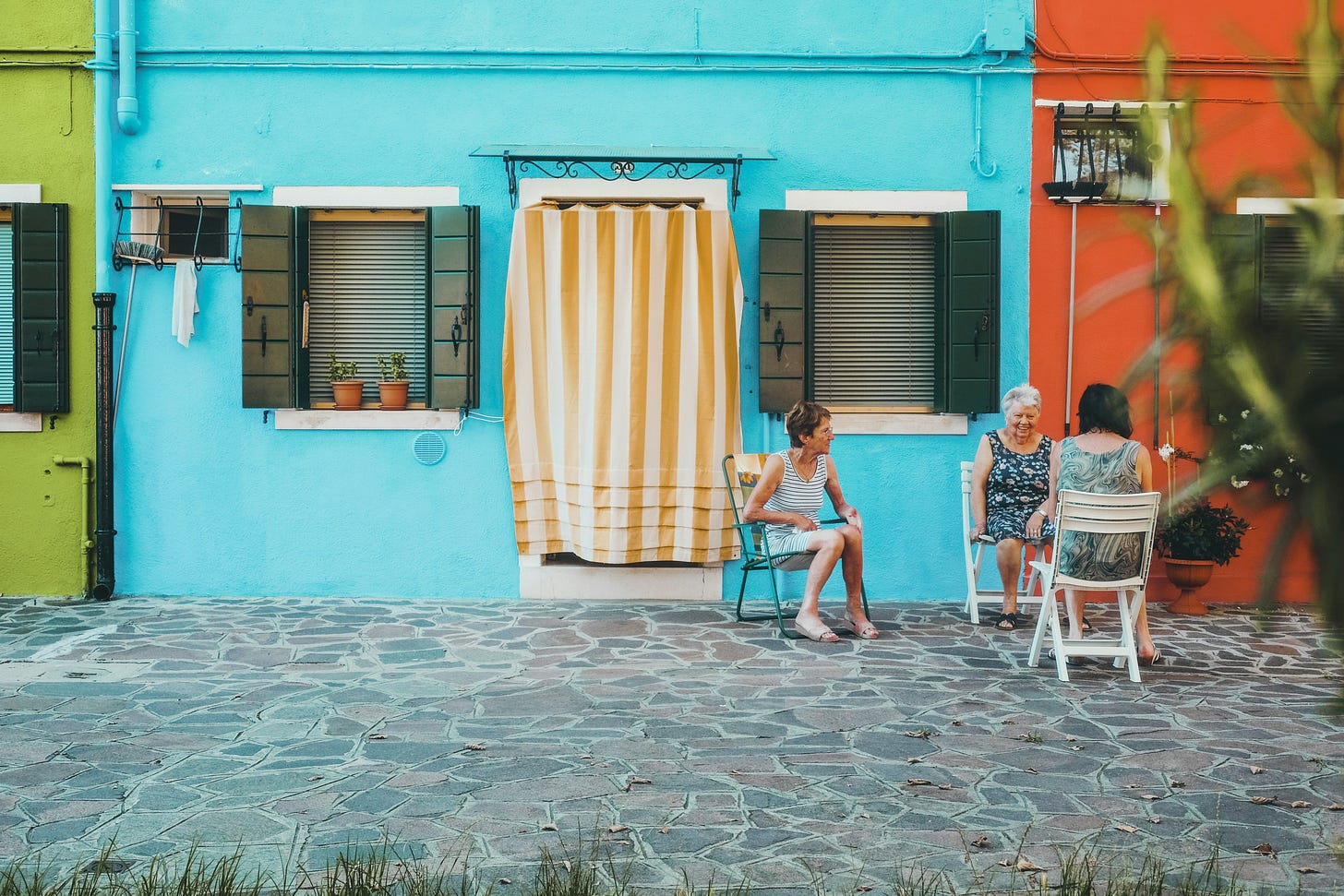
How to be alone Belong
From some things being okay, to feeling a sense of belonging now. This beautiful poem was re-shared on Instagram by Small Giants Academy, written by poet and theologian Pádraig Ó Tuama from his collection called 44 Poems on Being with Each Other. I shared this back in the sixth edition of Conscious Humanity, but it spoke to me again this week.
The poem opens like this,
“It all begins with knowing
nothing lasts forever.
So you might as well start packing now.
But, in the meantime,
practice being alive.
There will be a party where you'll feel like nobody's paying you attention.
And there will be a party where attention's all you'll get.
What you need to do is know how to talk to
yourself
between these parties.”
See the Instagram post for the rest of the poem, which encourages the reader to touch themselves (not in a weird way), comfort themselves, and try to stay alive.
It ends, tenderly, with this:
“You are such an interesting conversation.
You belong here.”
The Rise of the Matriarchy
On a slightly different note, the fierce Gina Chick wrote this reflection about the power of feminine connection and like all her work, it resonated deeply with me. Here, she talks about her newfound “role model” status:
“These girls look up, shy and bursting with excitement, eyes shining, and I crouch to meet them. Me with my silver feathers and wobbly bits and bare feet and no makeup, like someone’s weird bohemian grandmother, talking to these young women about becoming fierce, about finding the path that’s theirs alone, where anything is possible if you trust your feet and your belly. Anything is possible, no matter what the world might say. Fuck ‘em all, I say with a wink instead of words. With the crinkles at the corners of my eyes. Be utterly yourself.”
Gina says this is possibly the most beautiful thing to come out of her time on Alone Australia, knowing that she’s inspired young people and especially young women, to challenge the status quo. And to listen to deeper wisdom…
“That there is a world beyond social media, a messy paradise of dirt and sunrises and the smell of fire smoke and trust in one’s hands and heart and the deep growl of instinct. Where nourishment comes not from how we look but the art we bring to the world that can only come through these wisening hands.”
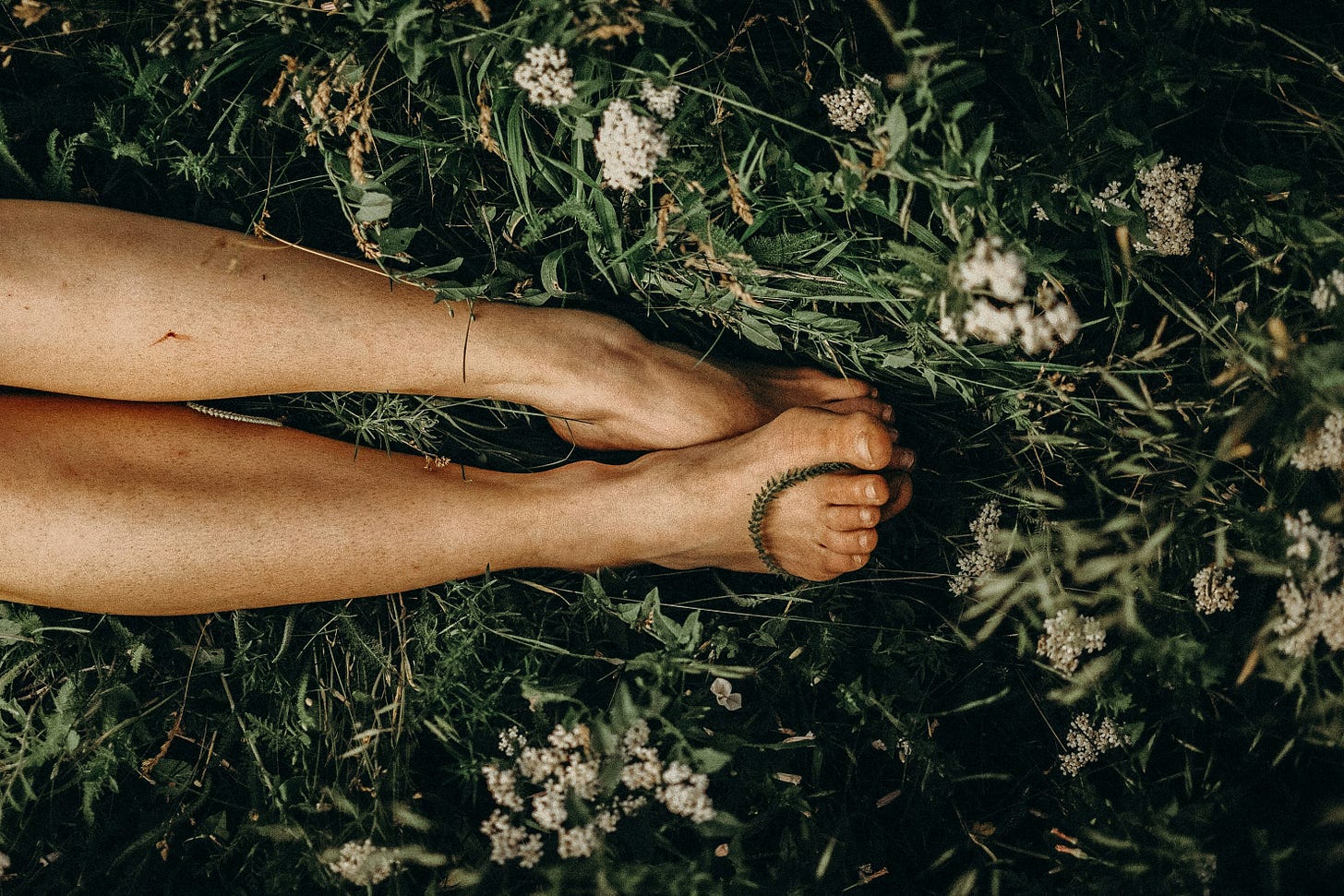
The Giants
From one inspiring person to another, I came across a beautiful film documentary called The Giants thanks to Parents for Climate’s latest newsletter. The film simultaneously explains the wonder and science embedded in Lutruwita/Tasmania’s ancient rainforests and the life of passionate environmentalist, Dr Bob Brown.
The film taught me things I feel like I should have already known, about forests and recent Australian political history but also, about the tireless work of Dr Bob Brown to protect precious forests from logging, and progress environmental and human rights policy generally.
The vitriol Dr Brown has faced throughout his life is horrendous, but his decades long dedication to defending the environment is incredible. He spent 16-years as leader of the Australian Greens party, co-founded the Wilderness Society, and founded the Bob Brown Foundation to name just a few of his achievements.
In the opening scenes of the film, Dr Brown emphasises that we are nature and says that nature itself has become central to his sense of spirituality (but not religion). A sentiment reinforced by Dr David Suzuki towards the end of the film:
“…for 99% of human history, we understood that we were deeply embedded in nature and utterly dependent on it.”
It’s only in recent years we have forgotten this.
The message that stayed with me after watching the film is that at many times, what Dr Brown and his supporters faced in terms of political and commercial opposition, seemed impossible to overcome, but they made huge gains regardless. Some of Dr Brown’s final comments in the film are these (which I think we really need at this moment in history):
“There is nothing a small group of people can’t do when the idea they’re espousing’s time has come… There is something in the air right now. It’s not going to go away. It’s just going to build. And when I see those massive numbers of younger people who say, “I’m going to change this.” I say, “Go for it!”
Powerful. Inspiring. And well worth a watch!
The Giants is on Netflix now and apparently on Vimeo for some (but not in my region).
Why Gardening Makes Us Happy
Staying with a green theme, in The Conversation’s Friday essay, Carol Lefevre from the University of Adelaide wrote about the healing relief that plants, and gardening, can bring.
If you’re lucky enough to have a little patch of garden, you have probably already discovered the quiet joy it brings. Even a few pots of herbs on the kitchen counter or window sill can offer good vibes! And for those who like evidence, science can explain why gardening (and plants) actually make us happy.
“Perhaps the simplest way to forge a connection with nature lies in our own suburban gardens, if we are lucky enough to have them. Aside from the pleasure of creating pleasing spaces, contact with the soil bacteria Mycobacterium vaccae has been shown to trigger the release of serotonin in the brain. Serotonin, a natural antidepressant, strengthens the immune system. An added bonus is that when we harvest edible plants, our brain releases dopamine, flushing our systems with a gentle rush of satisfaction and pleasure.”
So, go outside and “touch grass” (or dirt, in this case)!
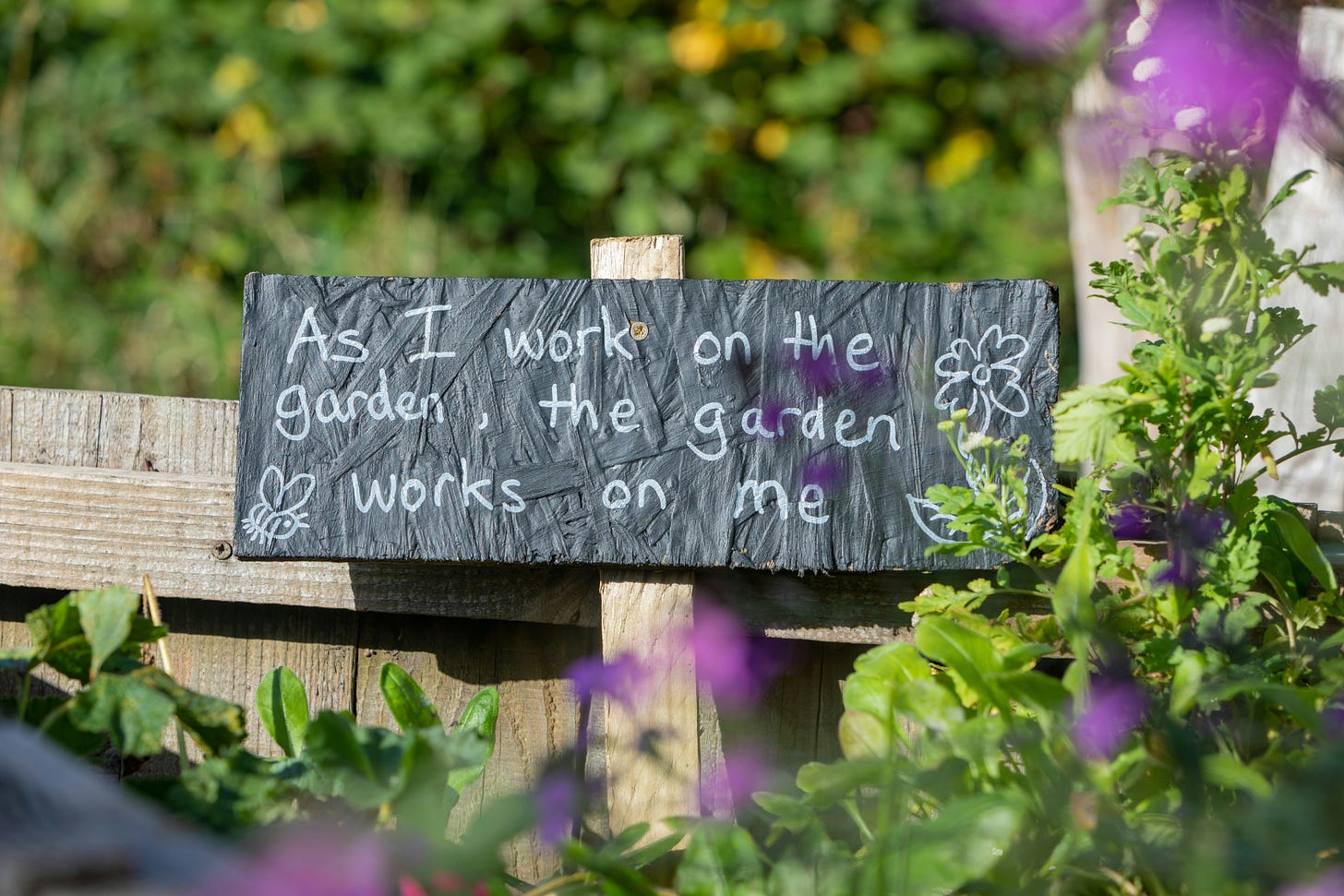
How ethical is your chocolate?
On a seasonal topic now, and I’m not much of a sweet tooth (give me a savoury muffin over a chocolate egg any day) but it’s hard to avoid chocolate with Easter weekend just around the corner!
Conveniently, The Conversation shared results from the sixth global Chocolate Scorecard this week, so we can make more ethical chocolate choices. The survey ranks chocolate manufacturers on the following criteria:
Traceability and transparency (how transparent they are about their producers, supply chain, manufacturing, etc.)
Living income (for cocoa farmers)
Child and forced labour (yes, some chocolate manufacturers are still implicated in child labour in 2025!)
Deforestation and climate
Agroforestry
Pesticides
The TLDR version of the results is:
Tony’s Chocolonely came out on top overall!
Nestlé came in at No. 5, which is not too bad (and Whittakers came in at No. 6)
The shocker is, Mondelēz who own Cadbury refused to participate in the survey and when they have taken part in the past, scored terribly on nearly every criterion!
A notable mention is that Mars won the Gender Award (for promoting gender equality)
So, hello Tony, and goodbye Cadbury.
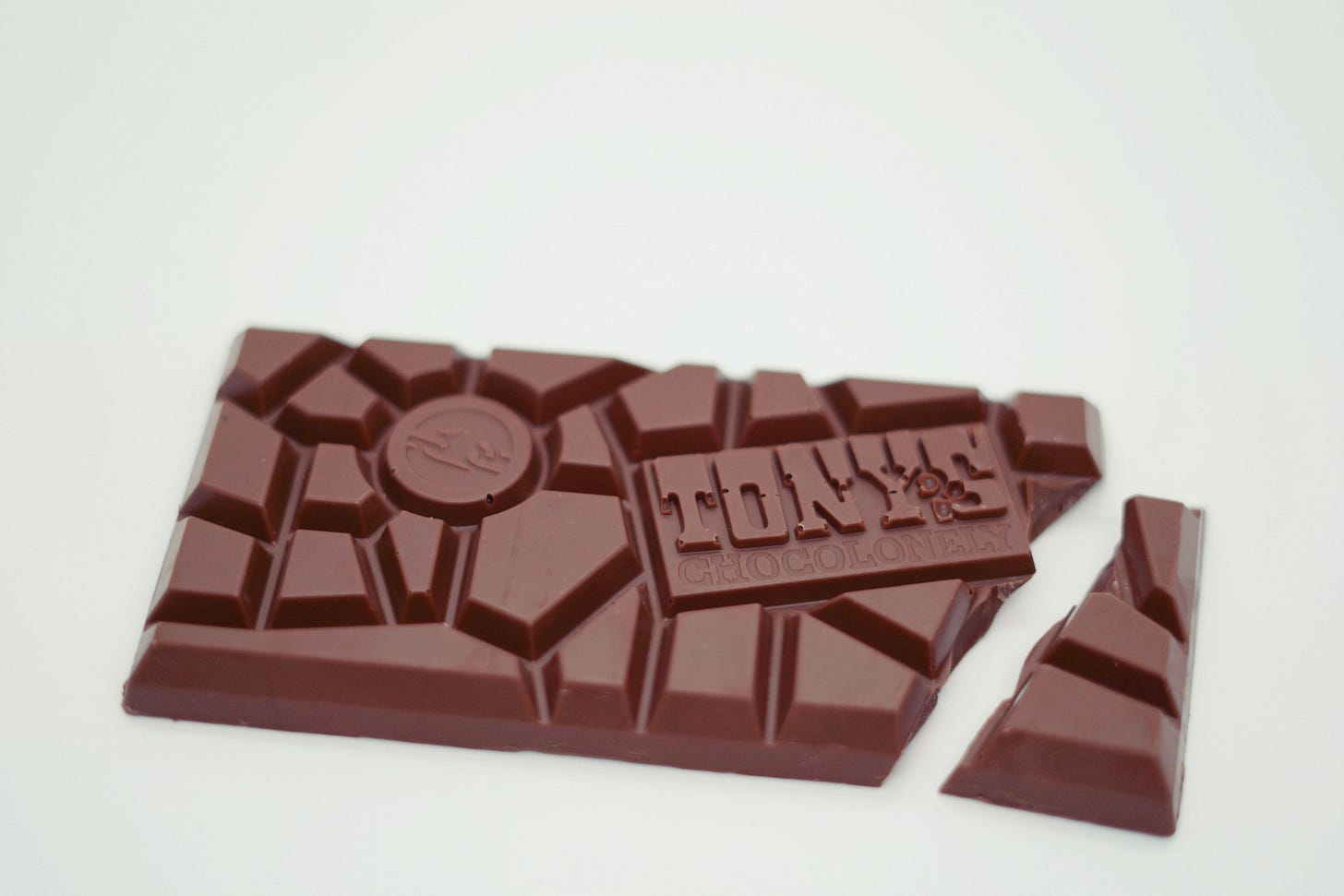
A Final Thought… on Drop Bears
The final spot today is dedicated to Australian Geographic’s brilliant April Fools Instagram post titled ‘Drop bears target tourists, study says’. Luckily, most people in the comments got the joke, but I wonder if any unsuspecting tourists were fooled?
And that’s all for this fortnight. As always, I hope something here has brightened your day, prompted an ‘aha’ moment, or inspired you to take action on something close to your heart.
🙏🏻





I f*cking love it here 💜